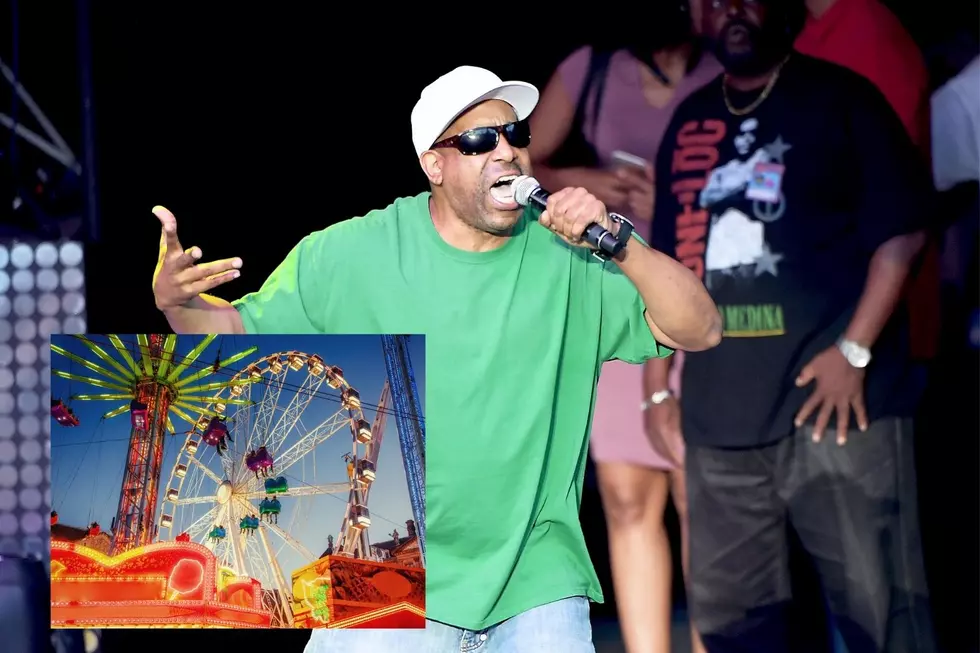
Little Rock’s Riverfest Announces Decision to Suspend Event
On Tuesday, the Riverfest, Inc. board of directors in Little Rock announced its decision to suspend its annual music festival, a tradition that celebrated 40 years with its most recent event in June, 2017.
“We can no longer deliver the experience that Riverfest fans have come to expect,” said DeAnna Korte, the festival’s executive director said in a press release. “Rising costs of performers’ fees, coupled with a greater number of competing festivals around the country are the underlying factors leading to this decision.”
“With our bills paid, and our heads held high, we are closing the doors,” said Riverfest board member Cheddy Wigginton, who has served two terms as board chairman and in various other positions throughout the years. “We had a fantastic 40-year run, and we had a great economic impact upon Little Rock and Arkansas. DeAnna and her team – supported by thousands of dedicated volunteers – did a phenomenal job.”
The announcement follows a national trend of festivals announcing closure, cancellation and bankruptcy. At least nine festivals in seven states and in Washington, D.C. announced that their 2016 events would not take place at all. Examples of festivals that have recently been cancelled include BayFest in Mobile, Ala.; Wakarusa in Ozark, Ark.; Gathering of the Vibes in Connecticut; Pemberton in Canada; and Karoondinha in Pennsylvania.
“For a nonprofit like Riverfest, it’s about income vs. expenses,” Korte stated. “We are a very small market, and there are larger music festivals surrounding us. The festival market is very crowded. It’s hard for a nonprofit to compete in a growing market of for-profit festivals, which are driving up prices and making it difficult to secure artists.”
Over the years, Riverfest adapted to changing market trends and demographics. “We tried to hit different demographics,” Korte said. “We knew we were never going to make everybody happy, but we strived to offer a bit of something in every musical genre.”
The press release goes on to say, after a significant loss in 2015, Riverfest organizers realized the price of tickets going up was excluding the family demographic – they just couldn’t afford to come. “The music was driving the ticket sales, so we decided to focus on music for Riverfest and created Springfest as a free family-focused event, that was also a nice way to give back to the community,” Korte said.
For 2016, Riverfest also made the decision to move away from Memorial Day weekend in hopes of increasing attendance.
“We raised more money in sponsorships in 2017 than we have in our history,” Korte said. “Our sponsors have given us the ability to grow our festival, understanding the changes we were trying to make. But it takes money to make money, and we are a nonprofit organization. The music industry as a whole has changed, and it is very difficult to compete. The whole reason for our existence is to give back to the community.”
Weather also was always a factor in Riverfest’s ability to be successful. “Our sole income prior to the event each year comes from our sponsor base, and we have had such great support over the years,” Korte said. “But it is an outdoor event, and we are always at the mercy of the weather for most of the revenue. It impacts not only ticket sales, but also commissions from vendors.”
Riverfest, Inc. is a 501(c)(3) non-profit that has contributed more than $1 million back to the community from proceeds of the event, including the development of Riverfront Park, a new roof on the First Security Amphitheater, and various projects in the riverfront and downtown areas. The festival also donates $1 of every ticket sold to the City of Little Rock.
“Our entire budget is $2.6 million,” Korte said. “That may sound like a lot, but in the world of music festivals, it is a shoestring budget. It costs $300,000 just to run two stages. Security, which is a high priority for us, is nearly $200,000. Fencing the perimeter is $60,000. Cleaning the grounds is $30,000. We have done everything we could do to cut costs. We trimmed over $300,000 in expenses between 2015 and 2016. But we also want to provide a quality event. The things that we could control, we controlled, to the best of our ability. But there are a lot of uncontrolled variables.”
Korte, who has served 20 years with Riverfest – including the last 13 as director – feels a deep sense of gratitude to the Junior League of Little Rock, the Little Rock Parks & Recreation Department and the event’s volunteers. In addition to her position, the paid staff includes one other full-time employee and one part-time.
“Our volunteers have sustained this event,” Korte said. “In addition to our outstanding volunteer festival planning committee of 250 and a 30-member board of directors, Riverfest is planned and executed with the assistance and support of more than 2,500 volunteers each year. It wouldn’t have been such a quality event without them.”
“For 40 years, DeAnna, her predecessors and all of the civic-minded leaders who were part of the Riverfest family worked selflessly to produce a great event,” said Gary Weinberger of Red Mountain Entertainment. “It was a pleasure to work with all of them.”
Riverfest began in August 1978, when the Junior League of Little Rock had the opportunity to bring the American Wind Symphony to Little Rock. The event was called The Summer Arts Festival and was held in Murray Park, with various activities built around the Wind Symphony’s performance.
The Summer Arts Festival was such a success that a decision was made to have a similar event the next year. The date was changed to Memorial Day Weekend, the name was changed to Riverfest, and the current logo was adopted. It was also at this point that Riverfest, Inc., a 501(c)(3) a non-profit organization with a board of directors, was formed to operate the festival, with the Junior League of Little Rock committing to provide primary volunteer support.
In 1982, after outgrowing Murray Park, Riverfest moved downtown, and the festival was held on the Convention Center Plaza along Markham Street. The following year, in 1983, Riverfest moved to its permanent home in Julius Breckling Riverfront Park, and more than 100,000 people attended the festival that year. As Riverfest grew and developed, a need for permanent staff arose, and in 1987, a full-time executive director was hired.
Riverfest continued to grow and expand along the banks of the Arkansas River in Julius Breckling Riverfront Park, including an expansion to the North Shore Riverwalk in North Little Rock from 2002-2010. In 2009, the festival expanded to include the Clinton Presidential Park and library. The festival played a vital role as an organization helping the cities of Little Rock and North Little Rock work together to make Arkansas a better place to live and work.
More From Eagle 106.3









